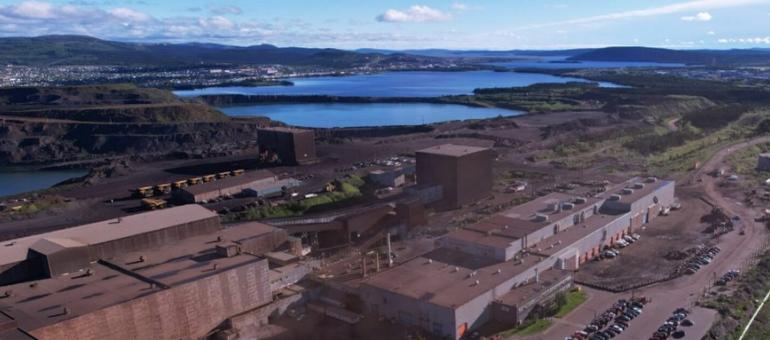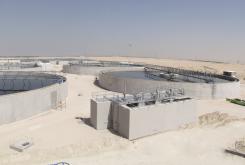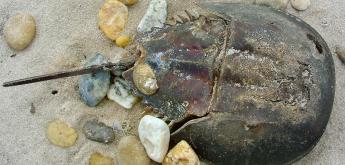Mobile Water Solutions Save Tacora Resources 1.35M$CAD, Reduce CO2 Emissions

When Tacora Resources’ No. 1 electric boiler failed, there weren’t many options for a solution. The global iron ore mining and development company didn’t have parts for repair and couldn’t get them or make the necessary fixes for several months.
The failure impacted Tacora’s operation, as its two electric boilers work together. The No. 1 boiler uses softened (low purity) feedwater, while No. 2 uses only the condensate return (high purity) from the first boiler as feedwater. With No. 1 out of commission, it could no longer supply condensate to the No. 2 boiler.
Tacora also has two oil-fired boilers in wet shut-down, which are only used when steam demand cannot be met or when there is a problem with the electric boilers, such as loss of power and limitations on demand for power, or maintenance. Tacora primarily operates electric boilers because of their reduced ecological footprint when compared to oil boilers and the low cost of electricity compared to the price of fuel oil.
Relying on the oil-fired boilers for the months it would take to repair electric boiler No. 1 would mean significantly increased CO2 emissions and operational costs. Tacora needed a quick solution to keep costs and emissions down, while continuing to meet the plant’s operational goals.
The challenges of remote sites
This Tacora Resources plant is located in a remote area of Canada in Wabush, Newfoundland and Labrador. Tacora purchased the Scully Mine there in 2017 to restart operations, and now has an annual production capacity of 6 million tonnes of iron ore concentrate.
As older ore and other mineral sites are depleted over time, mining operators are increasingly moving to more remote locations to develop deposits. Since water is a significant part of mining operations, sources of water and treatment options are critical to resource development companies.
At the same time, water scarcity and population growth are accelerating the demand for high-purity water across industrial applications. Tacora maintains the efficiency and integrity of its boilers by supplying them with previously treated water. Pretreatment depends on the type of boilers (electric, oil-fired, high-pressure, or low-pressure) and manufacturer recommendations.
New water treatment technologies are rising to meet the challenge. However, when problems arise in these remote areas, especially when they yield environmental concerns or disrupt operations, it’s essential to enlist solutions that can be implemented safely and quickly to meet the desired results.
Mobile solutions can be deployed rapidly
Tacora required a solution that would reduce operating costs of the plant and maintain steam production to meet demand, while also ensuring water usage and greenhouse gas emissions remained at the lowest levels possible.
Tacora contacted a local Veolia Chemical Control and Monitoring Services team member to inquire about a mobile water treatment system that could quickly supply Scully Mine with high purity boiler feedwater.
Veolia boasts North America's largest fleet of mobile water treatment purification systems. So it sent its Engineering Services team to the site to analyze the system and situation and determine the best solution. After evaluation, Veolia initially recommended Tacora use the No. 2 electric boiler at full capacity. But since the current pretreatment system cannot provide water with a conductivity lower than 20umhs, which is required for the feed water of the No. 2 boiler, the superintendent proposed using Veolia mobile demineralization units.
These mobile units consist of trailers containing the equipment necessary to produce demineralized water. Specifically, Veolia recommended its ion exchange demineralized solution instead of a reverse osmosis system to better sustain operations with high suspended solids in the feedwater.
In collaboration with Tacora, Veolia implemented the mobile treatment system and operated it within two weeks of the initial failure. For the next two months, as the No. 1 electric boiler was repaired, the system successfully treated the feedwater to the high purity level required by the No. 2 electric boiler without any interruption of steam production.
Operating the No. 2 boiler at full capacity enabled Tacora to meet the demand for steam while decreasing CO2 emissions and the steam plant’s operational costs. In the meantime, the parts for electric boiler No. 1 arrived and repairs were successfully completed.
An award-worthy collaboration produces winning results
If the oil-fired boilers had been running during the two-month wait for repairs, the plant would have emitted more than 5,500 tons of CO2. In addition to avoiding emissions, the mobile water treatment solution from Veolia saved $1.35M$CAD in total operational costs, spanning fuel, water, and chemical treatment expenses.
Because of the high impact of the collaboration with Tacora, Veolia presented the firm with its Return on Environment (ROE) Award, which recognizes Veolia customers for significantly surpassing and improving environmental and industrial operational goals while balancing industrial demands. Veolia honored Tacora with the award for its direct reduction of CO2 emissions and operational costs while maintaining the integrity of the equipment.
Veolia Mobile Water Treatment Solutions covers many applications in a variety of industries to avoid disruptions, maintain sustainability, and increase equipment integrity, no matter where problems arise. Find out more about what Veolia can do for your industry.







